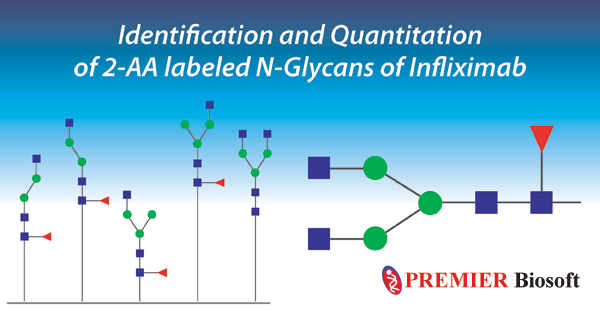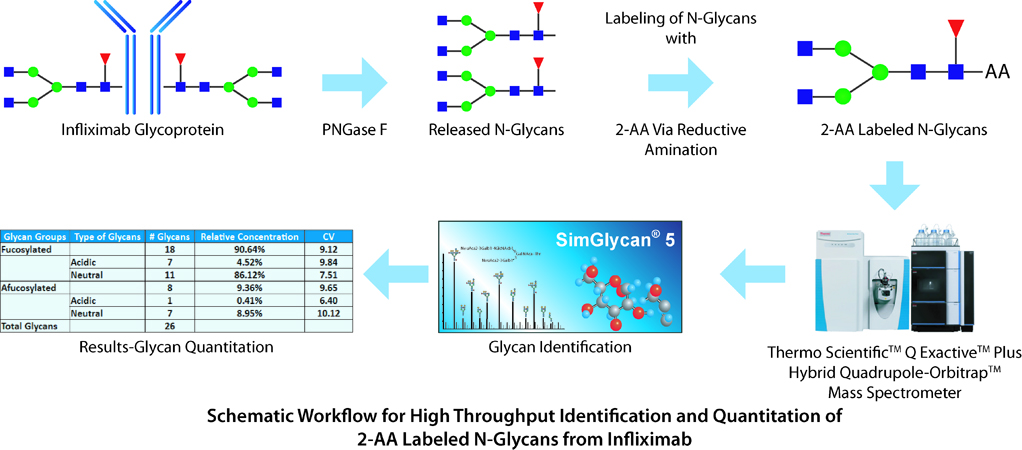Home >> Blog >> Identification and Quantitation of 2-AA derivatized N-Glycans from Infliximab using UHPLC coupled to a Thermo Scientific™ Q Exactive™ Plus mass spectrometer with SimGlycan software
Identification and Quantitation of 2-AA derivatized N-Glycans from Infliximab using UHPLC coupled to a Thermo Scientific™ Q Exactive™ Plus mass spectrometer with SimGlycan software

January 28, 2020
Infliximab, a monoclonal IgG1 antibody, is designed to target inflammatory cytokines mainly tumor necrosis factor-alpha. Understanding the structural characterization of the glycosylated Infliximab plays a significant role in therapeutic development. Liquid chromatography (LC)-mass spectrometry (MS) with tandem MS (MS/MS) can provide both identification of monosaccharide compositions and linkage orientation of the glycan information. Also, bioinformatics tools emerged as a requirement for efficient automatic analysis of MS-based glycomic data. The glycans from Infliximab were obtained after a detailed experimental procedure where the Infliximab samples were subjected to denaturation, reduction, and alkylation before the use of PNGase F for deglycosylation. Later, anthranilic acid (2-AA) was used to derivatize the released glycans. HILIC chromatography using a Thermo Scientific™ Accucore 150-Amide-HILIC column (2.1 x 150 mm, 2.6 μm) was also implemented to remove any excess label from these 2-AA labeled glycan samples. These released glycan samples were run for LC-MS analysis using a Thermo Scientific™ Vanquish™ Horizon UHPLC coupled to a Thermo Scientific™ Q Exactive™ Plus hybrid quadrupole-Orbitrap™ mass spectrometer in negative ion mode. Raw data from the triplicate analysis was acquired and peak picking and peak detection were performed using SimGlycan® v. 5.92 software. The LC-MS/MS data were then subjected to SimGlycan custom database search, with the custom database created using 26 glycans curated from published literature. A tolerance limit of 10 ppm was applied for both precursor and product ions. This facilitated the rapid and accurate identification of targeted glycans. For quantitation, the peak heights of the XIC were used to calculate the relative concentrations of glycans. Also, the relative abundance of a subset of glycans, e.g., fucosylated glycans present in the sample was measured across the three subtypes of N-glycans. The list of 27 curated glycans for the custom database is shown here. For more details, please visit http://premierbiosoft.com/citations/glycomics-posters.html

| Comment | Share |
|


